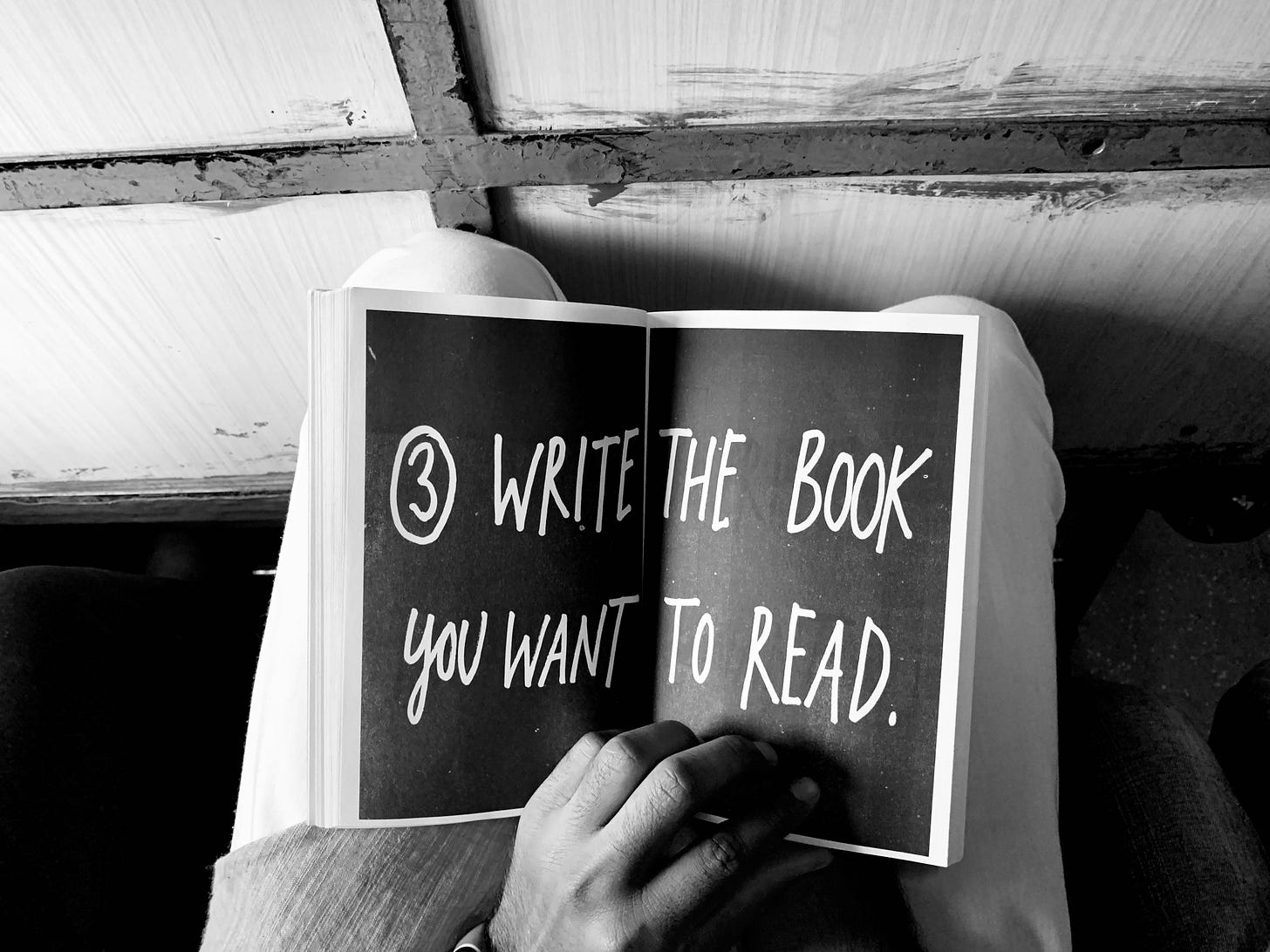The Reading and Writing Cycle
a flexible routine

If you're anything like me, you might be fascinated by other people's routines. As someone with ADHD, I can only marvel at the highly structured time-blocking schedules that some people set for themselves - and stick to. Meanwhile, I’m reading "Time Surfing: The Zen Approach to Keeping Time on Your Side" by Paul Loomans, who suggests doing the exact opposite: going with the flow and doing whatever feels right at every juncture. That doesn't mean, of course, that you're free to jump from one thing to another (as my brain would dictate); instead, you commit yourself to the next task that feels most important, and carry it through until a natural pause.
Of course, some of my day is structured: depending on the week there might be school pick-ups and drop-offs; no matter the day there's always some kind of medical appointment for myself or another family member; there's the times that I block off for meals (the preparation and consumption of). But for the rest of the day, I try to take it easy. I am, after all, recuperating from a flare of my chronic illness(es), and no, I am not working at the moment.
My writing, thus, arises naturally from the flow of the day. And here is how it goes:
1) Reading others
I start by reading something that could be loosely classified as "inspirational", by which I don't mean clichéd aphorisms, but rather something on a topic that is relevant to what I want to write about. For example, the other day I read part of an essay by Phillip Lopate entitled "Suicide of a School Teacher", which you can find in this collection. Hardly what one would call inspiration porn! Why did I only read part of it, and not the whole thing? Because I read until I feel ready to write. After a few pages, that readiness sunk in.
2) Free-writing
At this point, I'm ready to free-write whatever comes to mind. It's usually banality after banality as I situate myself in the here and now and write that I am writing. In this phase, I might ask myself questions such as "what do I want to write about today?" and "what if I wrote such-and-such about this-and-that?". It isn't until some way into the writing that an idea emerges that I can focus on.
3) Writing into an idea
At some point during the free-writing process, I hit upon an idea and actually write instead of writing around writing. That is, I go from writing things like "I wonder what I could write about today" to things like "I woke up that morning with a mix of hope and despair" (not an actual sentence I've ever written).
4) Reading myself
Once I feel like I've saturated my writing, I send myself an email with what I've written. Since I'm typing my words into a machine that only shows me 3-4 lines at a time, I don't get a sense of the entirety of what I've written until I can read it back over on a different device. Reading the wall of writing as a whole allows me to pick out bits that are promising, be it a whole piece that emerges as something I could envisage standing alone, a topic that might be worth covering in this newsletter, or simply a seed of an idea that I could develop into something.
5) Editing
Having read through the whole jumble of words that erupted out of me during the free-writing session, I then pick out a chunk to edit into something that can stand alone. Since I was writing through to saturation, there's usually at least something salvageable in the mess.
Best case scenario, I now have a piece I can submit to a lit mag (and get rejected after months of waiting!), or I've got something I can share with you. And obviously, there's days where neither are achieved. There’s days that I don't even start the process, and no words are produced. There’s days where I start immediately with an idea and carry it out to fruition swiftly and methodically. And then there’s days where I've written for hours on end without finding anything worth sharing with anyone. Importantly, this is not a set schedule or a thing that must happen every day.
writes elegantly about this - that no ritual can take precedence over listening to your body.Today, my body says that it will write. Effortlessly, words flow through my fingers and only later will I try to extract meaning. Right now, this is a judgement-free zone. Tomorrow, I'll feel paralyzed. I'll sit in front of a blank screen and no thoughts will come through my fingers. And that's ok, too.



the way this validated my neurospicy, creative brain! you're so right about listening to your body and instincts--forcing things has never ended well for me.
I don't have adhd but I'm a homeschool mom and have a child with special needs so I have to be very flexible too. Sometimes I'm just too tired and stare at a blank screen too.